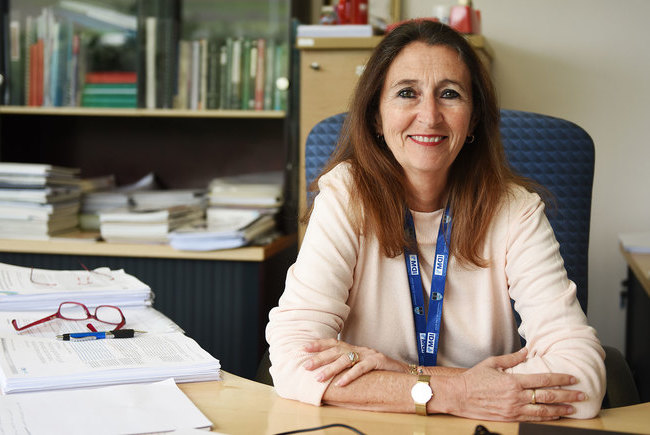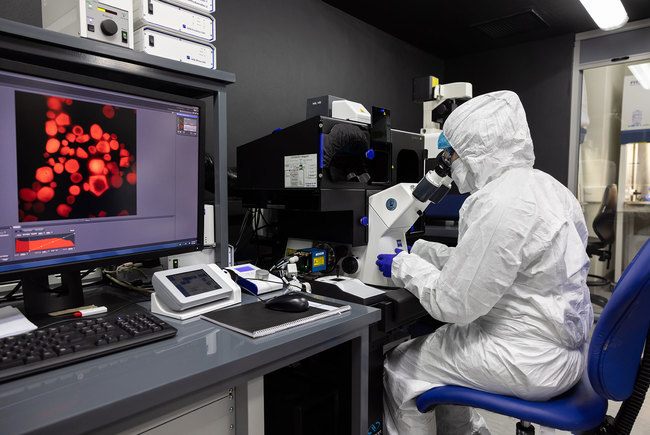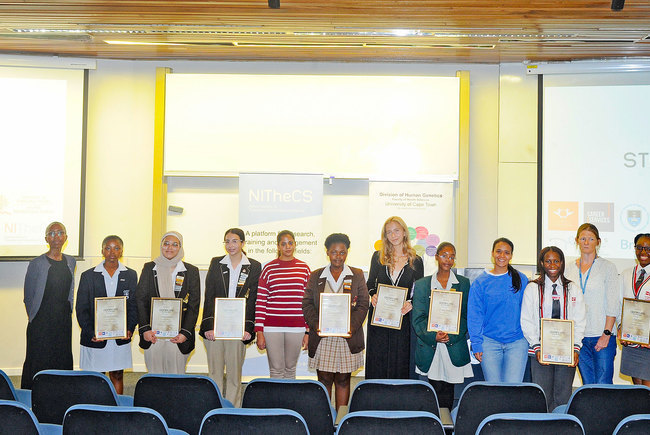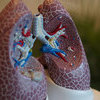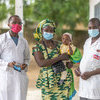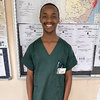Sister Seminar Series making science accessible
28 September 2020 | Story Nobhongo Gxolo. Read time 4 min..jpg)
A prestigious international seminar series with the aim of making science more accessible will turn its attention to the work done at the Department of Pathology and the Institute of Infectious Disease and Molecular Medicine (IDM) at the University of Cape Town’s Faculty of Health Sciences.
The Life Science Across the Globe series is a science communication partnership between Janelia, the research campus of the Howard Hughes Medical Institute, the IDM and six other leading research institutes – aptly named the Sister Institute Seminar Series. Here, scientists from around the world meet to discuss topical research under the Science and Science Culture umbrellas.
This week, on Wednesday the 30th of September, join PhD Candidate in Clinical Sciences and Immunology, based at the South African Tuberculosis Vaccine Initiative (SATVI), Cheleka Mpande and Professor Thomas Scriba, Deputy Director Immunology at SATVI.
Immunopaedia: Advancing global Immunology education is the title of Mpande’s talk under the Science Culture umbrella. The focus is on the role played by researchers in advancing global immunology education both formally; through the facilitation of self-paced online courses and clinical case studies examining the immunological basis of clinical presentation, and informally; via interviews that aim to showcase the scientific journey of both junior and more established senior scientists.
Mpande, who is also the Junior Communications Officer for Immunopaedia, says the aim of her talk is to showcase the work Immunopaedia does to help alleviate the sense of feeling out of one’s depth, which is oftentimes the result of participants with diverse academic backgrounds attending courses with advanced immunology content. Immunopaedia plans to do this by: “ensuring that course participants have the core and advanced immunology knowledge required to fully and comfortably participate in the course. We [Immunopaedia] are also active in science communication by providing summaries available on our website and shared on the Twitter and Facebook pages, of novel findings that have the potential to impact health management. The activities highlighted are all important aspects of science culture.”
Driven by the need to make Immunopaedia’s work practicable and accessible Mpande says it’s important for everyone to understand how the immune system contributes to pathology or resolution of disease in clinical management. “This knowledge should not only be accessible to scientists and clinical practitioners but also to the greater non-scientific community, as it will boost confidence in immunotherapy, vaccines and potentially lead to buy-in from the non-scientific community to advocate for access to novel therapeutics and diagnostics.”
Scriba’s Science talk, Vaccination against tuberculosis: Old dog and new tricks, looks to provide a reflection on the long and often winding road that vaccine development for tuberculosis (TB) has taken. He’ll highlight various exciting and recent developments and results, which have provided important impetus to the field. “I also plan to contrast TB vaccine development against COVID-19 to illustrate what real urgency can achieve… The incessant quest for a more effective TB vaccine is exemplified by the fact that next year will mark the centenary of BCG (Bacille Calmette-Guerin), the first and still the only TB vaccine for humans, which is unfortunately only partially effective. New and innovative science is urgently needed to accelerate TB vaccine development.”
The response to the COVID-19 pandemic is eliciting innovative ways for how research groups can adapt while continuing to do their work and stay on mission. For Scriba this is of importance because although COVID-19 is a serious health threat that requires urgent attention, it does not mean that existing health priorities, diseases and epidemics have disappeared.
“To the contrary, interruption in routine public health services due to the COVID-19 response has already reversed gains made recently in controlling major infectious disease burdens, including TB, HIV and others – diseases that cause enormous morbidity and mortality. It is critical that we refocus, and more importantly, improve upon our efforts to tackle all epidemics in the country and on the continent,” he says.
Join the Zoom conversation here: https://hhmi.zoom.us/j/95859517201?pwd=b2pha2xhWWk4a1BteWJrcStVUWdOQT09.
Zoom ID: 958 5951 7201
Passcode: 489171
 This work is licensed under a Creative Commons Attribution-NoDerivatives 4.0 International License.
This work is licensed under a Creative Commons Attribution-NoDerivatives 4.0 International License.
Please view the republishing articles page for more information.
Faculty of Health Science News








